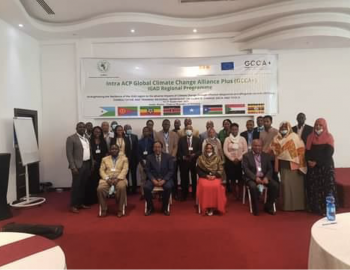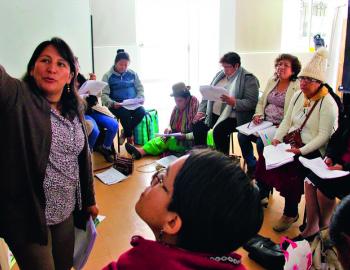WORKING PAPER: Emerging technologies - new opportunities for climate compatible development
WORKING PAPER: Emerging technologies - new opportunities for climate compatible development
A CDKN Working Paper by Ben Combes, Darius Nassiry, Lizzy Fitzgerald and Tarik Moussa – Emerging and exponential technologies: New opportunities for climate compatible development - discusses how new technologies can contribute to achieving climate change goals in developing countries, focusing on how emerging and exponential technologies can support, and potentially accelerate, the implementation of Nationally Determined Contributions (NDCs) under the Paris Agreement within the broader context of low-carbon, climate-resilient development.
The Fourth Industrial Revolution (4IR) – the dynamic economic transformation now under way, driven by disruptive new technologies and business models – is projected to affect many production and consumption systems, with far-reaching implications for the environment, economies and society. Building on the Third Industrial Revolution (3IR) – which began with personal computing, expanded to mobile phones and the Internet, and has reshaped entire sectors of the economy – the 4IR is expected to have similarly broad impacts, including profound economic impacts over the coming decades.
Emerging 4IR technologies include advanced materials, artificial intelligence, autonomous vehicles, big data, cloud computing and the Internet of things, as well as other new digital technologies. The advancement of these technologies will bring about a period of technology-driven change that is of unprecedented speed, scope and scale. This will correspond with efforts to implement the Paris Agreement and other climate change strategies, and to fulfil the Sustainable Development Goals.
This dramatic shift in technologies will be accompanied by similar transitions in business models and social systems. Policy-makers, development planners and other stakeholders will play a key role in shaping whether the 4IR can be harnessed to help their countries achieve their NDCs. It will therefore be important for decision-makers, in both the public and private sectors, to understand the potential of new technologies to advance climate change and development objectives, and maximise benefits while minimising transition risks.
The authors consider the implications for developing countries and invite further discussion.
Please visit Ben Combes and Darius Nassiry’s blog page to leave your comments about the paper, or join our conversation on twitter: @cdknetwork



